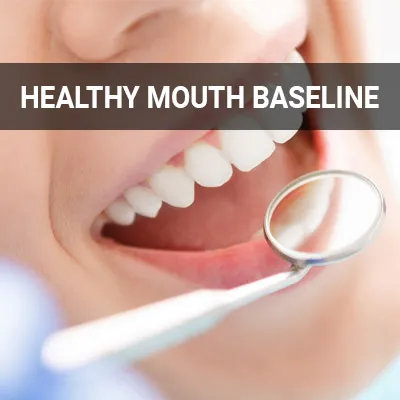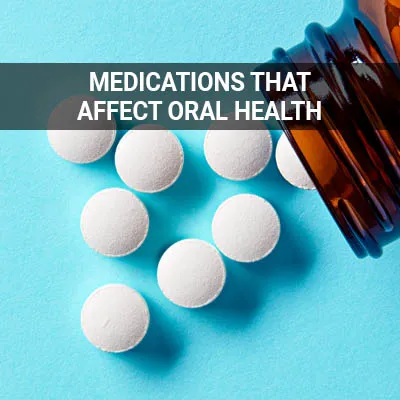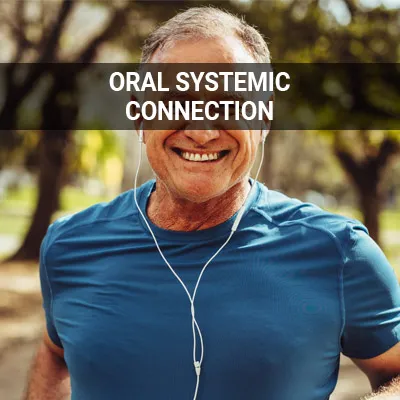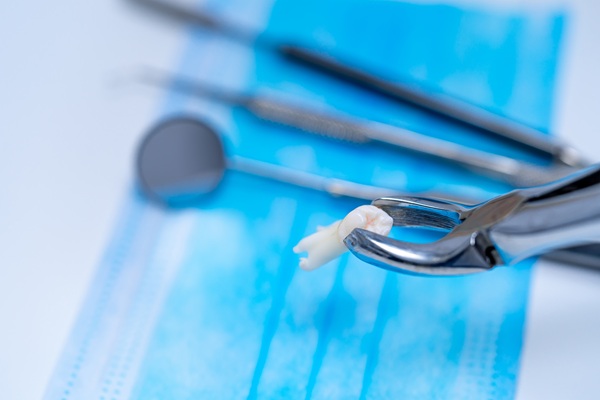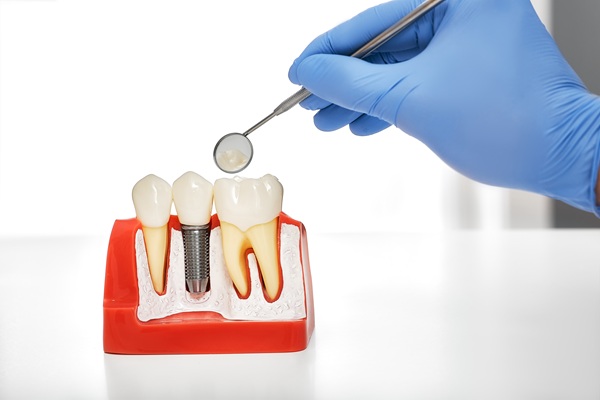Gut Health Aurora, CO
Oral health and gut health have a close relationship. Tending to your oral microbiome will help you maintain a healthy gut and prevent health problems. While most are beneficial, bacteria that migrate from your mouth and travel to your gut can change the balance of your gut microbiome. This may have consequences for your overall health. A total health dentist can recommend certain practices or procedures that help you maintain a balanced microbiome to keep your mouth and gut healthy.
Approaches to oral care that encourage good gut health are available at Southland Smiles in Aurora and the surrounding area. We provide total health dentistry and offer a range of services, including strategies for preventative health. Call us at (720) 599-2961 to learn more.
Oral Microbiome
The mouth, much like the digestive system, is host to several microscopic organisms such as bacteria, yeast, and fungi. Microorganism populations that colonize in the body are called microbiota or microbiome. The oral microbiome is largely helpful, protecting the body from unwanted stimuli and harmful bacteria that cause gum disease and bad breath. However, if oral bacteria become overgrown, unbalanced, or spread to other parts of the body, it can negatively affect a person's health.
Therefore, maintaining the right balance of bacteria in the mouth is essential to good health. Overgrown oral microbiota can travel through the body via swallowed saliva, nutrients, and drinks and interact with other microbiomes in other body sites. Problematic bacteria that make it through the digestive system, for example, can further disrupt the balance of the gut microbiome, potentially contributing to several serious health problems.
“Maintaining the right balance of bacteria in the mouth is essential to good health.”
Oral Health and Gut Microbiome
The digestive system also relies on the beneficial gut microbiome to protect and maintain the tissue function of the intestine lining. Displaced oral bacteria can cause an imbalance in gut microbiota, a condition called gut dysbiosis. Overgrowth of harmful bacteria in the gut can further incite an inflammatory response and cause a leak in the intestinal lining—a syndrome called "leaky gut."
Several serious diseases get linked to oral bacteria that have colonized in otherwise healthy intestines. For example, bacteria from gingivitis and periodontitis remain robust, surviving the harsh digestive stomach acids. If these bacteria migrate beyond the stomach and into the colon, they can influence the structure and function of colon cells, potentially leading to cancer.
Diseases associated with the presence of increased oral bacteria in the gut or persistent gut dysbiosis include inflammatory bowel disease, HIV infection, liver cirrhosis, colon cancer, gastroesophageal, reflux, and alcoholism. Maintaining good oral health—and by extension, good gut health—is a critical strategy in preventing select health problems.
“Several serious diseases get linked to oral bacteria that have colonized in otherwise healthy intestines.”
The Microbiome and the Immune System
The microbiota plays an integral role in the inducting, training, and functioning of the patient's immune system. Accordingly, the immune system has evolved to maintain the patient's symbiotic relationship with the evolving microbes. Ideally, the immune system-microbiota alliance induces protective responses and supports regulatory pathways. Disrupting the microbiota will wear away at the resilience and diversity required for proper immune responses.
The gut microbiome is an endocrine organ in and of itself. The endocrine system synthesizes and secretes hormones to regulate physiological processes. As such, bacterial metabolites and components may affect organ function and physiological outcomes. These may also send signals to the immune and nervous systems. It is necessary to feed the gut army to encourage the diversity that can combat inflammation. Fiber is a good source of this, especially cruciferous vegetables.
“The microbiota plays an integral role in the inducting, training, and functioning of the patient’s immune system.”
Check out what others are saying about our dental services on Yelp: Gut Health in Aurora, CO
The Oral-Gut-Brain Connection
Several recent studies have confirmed the gut's connection to the brain, heart, and liver — but these studies often neglect to discuss the impact of oral health on the gut microbiome. Dysbiosis of both oral and gut microbiome can influence mental health and may contribute to degenerative diseases like dementia and Alzheimer's disease.
An unbalanced microbiome can affect the brain both directly and indirectly. For one, dysbiosis may stimulate the formation of plaques, which get tangled in brain tissue and neural fibers, impairing brain function. Second, metabolites produced by certain bacteria in the gut can interfere with special immune cells found in the brain, called microglia, which elicit an inflammatory response damaging to healthy brain tissue.
“Dysbiosis of both oral and gut microbiome can influence mental health.”
Questions Answered on This Page
Q. How does the microbiome affect the immune system?
Q. What is the oral microbiome?
Q. How does oral health affect the digestive system?
Q. How do gut issues related to the oral microbiome affect the brain?
People Also Ask
Q. What services are offered by a general dentist?
Q. What pre-existing conditions are affected by dental health?
Q. What are some risk factors for oral cancer?
Q. What are some conditions that a complete health dentist can diagnose?
Maintaining Gut Health
There are many things individuals can do to maintain their gut health at home. Lowering their stress levels is critical, as is getting enough sleep. They should eat slowly, stay hydrated, and take a pre- or probiotic. Some may also benefit from checking for food intolerances and changing their diet accordingly. However, nothing can replace the expertise of a complete health dentist.
Though most dentists are aware of the link between gut health and oral health, traditional dentists still tend to focus on treating isolated symptoms rather than the root cause of a patient's condition. This can be a costly mistake, as poor gut health may lead to periodontal disease and dental decay. A complete health dentist can identify signs of poor gut health and stop its adverse effects. Furthermore, complete health dentists are not limited to diagnosing and treating oral health conditions. They can often recognize the signs of other systemic diseases associated with poor oral health.
Poor gut health often starts when bacteria enter the mouth, cause oral infections, and spread to other parts of the body. Southland Smiles is proud to help patients maintain their total health through personalized treatment tailor-made to fit each individual's unique needs. This involves regular cleanings, dental exams, wellness visits, and various other dental treatments a patient may need. Our offices can also, with patient permission, communicate with other healthcare providers to provide the most comprehensive care plan possible. Poor gut health may lead to several other health conditions. We can help patients maintain their oral hygiene to prevent any unnecessary complications.
Frequently Asked Questions
Q. What is the oral and gut microbiome?
A. The oral and gut microbiome describes a collective colony of microscopic organisms. They include bacteria that inhabit the soft tissues of your mouth and digestive system, respectively. The gut microbiome is the largest microbiome in the body with the second largest being the mouth.
Q. How does the microbiome affect my health?
A. Beneficial microbiota fights off harmful bacteria and stimuli and helps maintain homeostasis. But if problematic bacteria become overgrown or spread, they can cause damage to healthy tissue. This can mess with body functions, inviting inflammation and disease.
Q. How are oral health and gut health linked?
A. The mouth is the gateway to the digestive system, and if harmful bacteria associated with oral health migrate to the gut, the gut microbiome becomes unbalanced. That signals to the immune system that something is off and sets off an inflammatory response. Unwanted inflammation can damage the tissue lining the gut resulting in "leaky gut" syndrome.
Q. What can I do to improve oral health?
A. Eating fiber-rich and probiotic-rich foods help naturally keep the mouth clean while supporting healthy digestion. Of course, maintaining daily dental hygiene habits accompanied by regular dental check-ups will help you improve your oral health.
Q. Why is total health dentistry important for overall health?
A. Studies show that the health of the mouth and the health of the body are closely related. Adopting healthy dental habits may reduce your risk of developing other health problems. Ask your total health dentist what changes you can make to ensure good overall health.
Dental Terminology
Call Us Today
Proper gut health maintenance is critical to good oral and overall health. We at Southland Smiles may be able to help. Call us today at 720-599-2961 to schedule an appointment or to learn more about our services.
Helpful Related Links
- American Dental Association (ADA). Glossary of Dental Clinical Terms. 2025
About our business and website security
- Southland Smiles was established in 2009.
- We accept the following payment methods: American Express, Cash, Check, Discover, MasterCard, and Visa
- We serve patients from the following counties: Arapahoe County, Adams County and Douglas County
- We serve patients from the following cities: Aurora, Centennial, Parker, Englewood, Foxfield, Castlewood Rock, Lone Tree, Elizabeth, Franktown and Highlands Ranch
- National Provider Identifier Database (1265685796). View NPI Registry Information
- Healthgrades. View Background Information and Reviews
- Norton Safe Web. View Details
- Trend Micro Site Safety Center. View Details
Back to top of Gut Health



